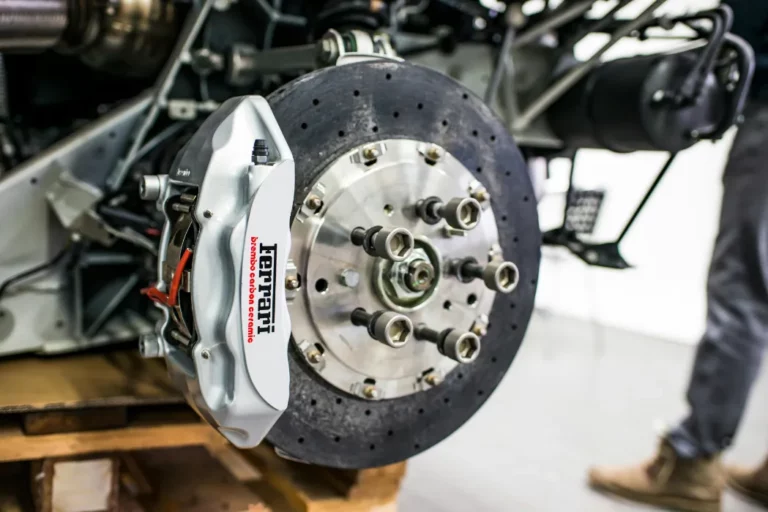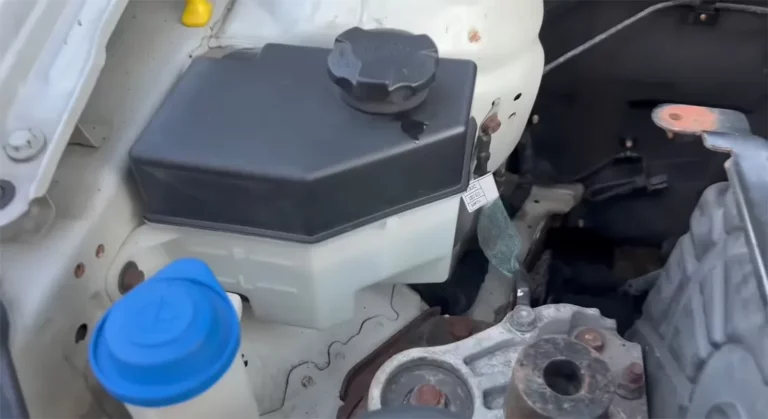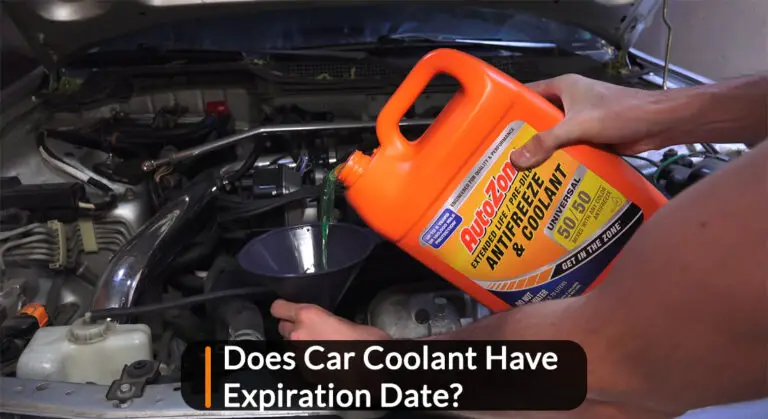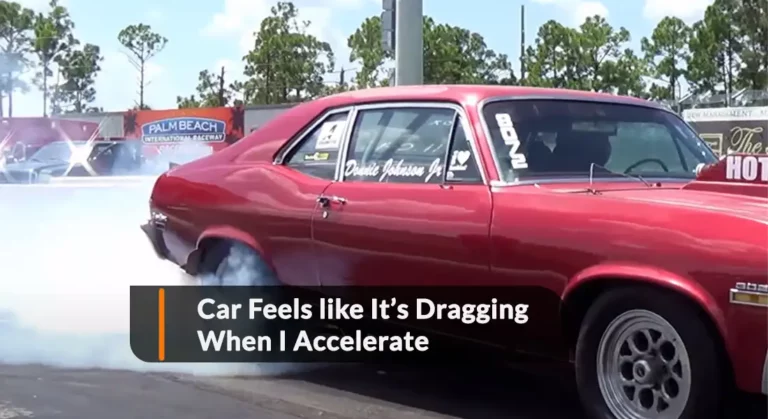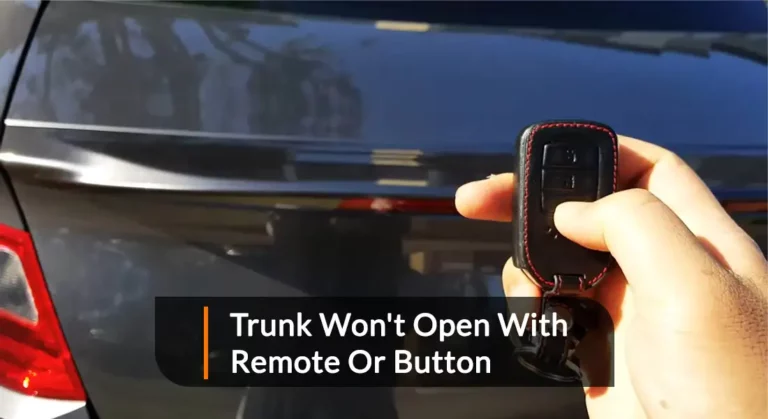Car Lurching Forward When Stopped – 8 Reason Explained
It can be very stressful when your car starts acting up. One such problem that car users face frequently is a car lurching forward when stopped.
This is usually caused by a mechanical failure of the car. However, different things might be causing this issue. So, troubleshooting this might take you a while.
So, pick up your tools, and follow us as we walk you through the entire troubleshooting process to find out why your car is lurching forward during a brake.
8 Most Common Reason Why Car Lurching Forward When Stopped
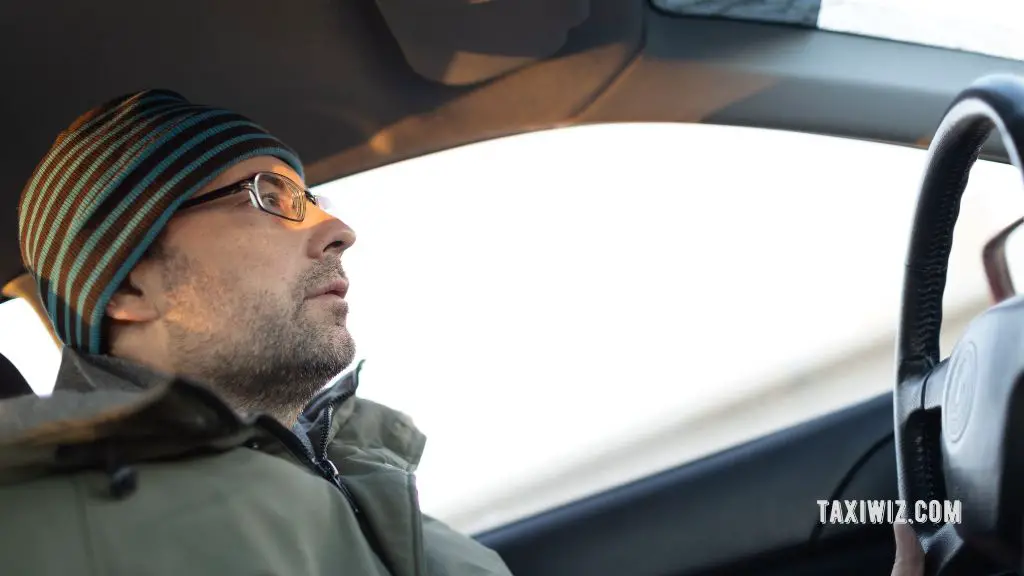
The following are the reasons why your car might be lurching forward during a brake.
1. Warped Rotors
Of all the components inside your vehicle, the ones associated with the brakes are most likely to decay first. Over time, the brake rotors of your vehicle might get warped. This mainly happens due to the overheating and rapid cooling process.
The distortion then leads to a variety of problems, among which car lurching forward or jerking is prominent. This happens mainly when the vehicle’s pads press against the distorted rotor. The pulsation is then felt due to the unevenness.
2. Faulty Brake-Booster
A brake booster functions to multiply the force of a brake pedal, and it does by using a diaphragm placed inside a vacuum.
However, if the diaphragm is damaged in any manner, it may fail to provide constant pressure to the pedal, this is what causes the vehicle to jerk while applying brake.
3. Problem with the Fuel Delivery System
A vehicle can suffer from different kinds of problems related to the fuel delivery system, and a faulty fuel delivery system can lead to the car lurching forward while stopped.
If it’s the fuel delivery system that’s acting up in your vehicle, you can try checking the fuel pressure regulator, injectors, and fuel filter.
The fuel filter can get clogged with debris present in the fluid. It’s very easy to clean the filter, and we recommend cleaning it now and then as it’ll help preserve the filter’s health.
A defective fuel pressure regulator can be replaced at an affordable price, so that shouldn’t bother you either.
Replacing the fuel injector can get a bit expensive, but it’s nothing you’ll have a hard time with. Then again, don’t settle for cheap injectors as they will lead to long-term damage.
These problems might make your car jerk when it’s parked but while the engine’s still running.
4. Ignition System Malfunction
The ignition system of your vehicle comprises components like the spark plug, coil pack, spark plug wires, etc. and these components end up failing as the car starts to age.
A lot of things can go wrong with the ignition system, but usually, it’s the spark plugs that malfunction. Fortunately, these components can be replaced at a very affordable price. You just have to find the appropriate spark plug for your vehicle.
In older vehicles, distributor caps and rotor buttons lead to similar issues. These too can be solved rather easily.
5. Improper Air Delivery
Internal combustion engines require a proper supply of airflow to function. If the vehicle fails to get proper airflow, it will choke and the performance will drop significantly.
Apart from the obvious performance drop, insufficient airflow also leads to engine misfires when the car is halted with the engine on. This is perceived as jerking.
So, what can you do to solve this? In most cases, the airflow is blocked due to a dirty or clogged air filter. Cleaning the filter regularly can prevent this from happening.
On the other hand, if the air filter is left untouched for a long time, it will only lead to further damage which can become irreparable. So, we believe regular maintenance is the key to avoiding this issue altogether.
6. Faulty MAF Sensor
Although it’s rare for a MAF, or Mass Airflow Sensor, to act up and cause jerking while your vehicle is stopped, it’s a possibility you can’t ignore.
If you tried troubleshooting the previously mentioned problems to no avail, then checking this is worth a shot.
The MAF is an essential component of the vehicle as it allows the engine computer to calculate the amount of airflow necessary so the other components can provide it appropriately.
This is also done in real-time, so it’s very effective. However, if the MAF sensor fails to provide accurate readings, it can lead to an unevenness in the airflow. This leads to a plethora of problems, and jerking while the car is stopped is one of them.
7. Transmission Issues
The transmission system helps the user change the gear based on the given input, and this is crucial to control the engine’s RPM.
If your vehicle’s transmission has faulty components such as a bad TCM or valve body, it will lead to several issues, jerking while stopped is among them.
8. Vacuum Leaks
Vacuum leaks can be very problematic as these are tough to identify. Due to the vacuum leaks, a certain volume of air enters the engine’s tract. However, this air isn’t accounted for by the engine’s sensors.
This leads to a disparity between the actual airflow and the data received by the engine’s computer. As the computer fails to regulate an appropriate amount of airflow, it leads to problems like jerking when the car is stalled.
Frequently Asked Questions (FAQs)
1. Why does my car jerk forward when I park?
With automatic vehicles, when you stop and shift to park, the car can take up some slack in the transmission.
And it can cause the car to jerk forward. The best way to avoid this is using the hand brake before shifting to park. That will help you avoid the forward jerking and protect the transmission from damage as well.
2. Does a dirty air filter cause your car to jerk?
The dirty air filter makes it difficult for the engine to get enough air. And when that happens, the balance between air and fuel inside the engine gets messed up, causing the car to jerk forward sometimes.
3. How do you diagnose car jerking?
We’ve mentioned that you need to check issues like air filters, transmission system, MAF Sensor, and others. But if you’re unable to do that by yourself, you should visit a professional auto workshop.
Conclusion
Suffering from a car lurching forward when stopped isn’t easy. It can get annoying, and it also strikes panic in the user. If you’re facing such problems, we recommend you troubleshoot your vehicle following the methods we mentioned just now.
If you aren’t confident in your skills, you should visit your closest mechanic. Now that you know what to look for, you can also supervise if the mechanic is taking every possible measure or not.
Lastly, please maintain your vehicle regularly. This will save you a lot of hassle.

